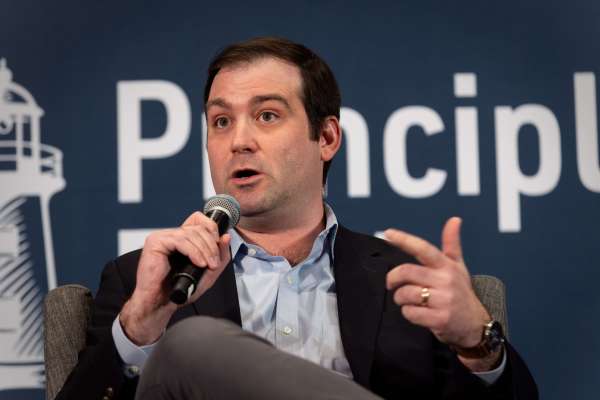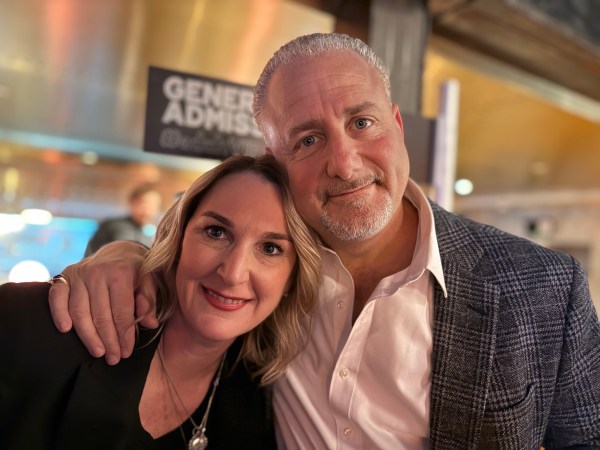Hey everybody,
Thanks for submitting some really thoughtful—and really fun—questions. I’m excited to take my turn in the mailbag rotation after almost two years on board.
Honest Ape: “Dispatch conservatism” must be a thing. My 28-year-old son, the “occasional” recipient of Dispatch articles from his dear old dad, recently said he may advocate for it upon his move to a new home in a blue state. How would you describe Dispatch conservatism, and what influence do you think it will have in the formation of the politics of America’s younger generations?
I got a few questions about Dispatch conservatism, and I should probably admit at the outset that I am definitely not the person to define it companywide. This is not just marketing talk, but I think the best way to start to understand “DC” is to read Jonah Goldberg’s recent Monday Essay, “Don’t Call This Conservatism.” Then read Scott Lincicome’s Capitolism newsletter. Then get lost in a rabbit hole and decide for yourself.
To me, Dispatch conservatism is a deep-rooted respect for our founding principles, an admiration for our strongest institutions (and a desire to improve them, not tear them down), a willingness to learn new things and be challenged, and a hopeful patriotism. That doesn’t mean one necessarily has to check all those boxes to be a “Dispatch conservative,” of course, and I think that’s what draws so many young people to this particular way of thinking.
We’ve been working a lot on our student sponsorships program recently—where generous Dispatch members can donate free memberships to high school, college, and grad school students. We’ve spoken to a number of student recipients, and the ideological makeup of that group is definitely varied—but each one is grateful that The Dispatch exists to challenge their thinking, teach them something new, and help them better express and defend their values.
To me, Dispatch conservatism is all about the free exchange of ideas, and conserving a hunger to learn for the next generation.
J. Eric: If I remember correctly, you started at TD as the editor of TMD. What was the greatest challenge in that role, and why did you leave it??
Great memory! I did start as editor of The Morning Dispatch, and it was one of the most enjoyable and challenging roles I’ve ever had. I started the job with very, very little (read: zero) formal journalism experience—and in my first week, Kevin McCarthy was ousted from the speaker’s chair and Hamas attacked Israel. I had a great team around me and learned a lot. I loved every minute of it, even as the wee hours ticked by. Editing is hard work.
Six months into my tenure, The Dispatch set out to grow the business team, and as someone with nearly a decade of experience in the PR/marketing/comms world, the higher-ups approached me and asked if I’d like to trade in my ink-stained fingers for a power tie. (Editor’s Note: I have literally never seen James wear a tie.) I was sad to leave editing, but the opportunity to contribute directly to the growth of an organization I believed in so strongly was too great to pass up. I jumped at the chance, and the rest is history. I’ll also say, my sleep schedule has improved quite a bit since the move.
DJElmore: What is up with the Dispatch softball team? Are conservative journalists and accompanying business folk just not cut out for competitive sports? What can be done to up their game? Is there a strategy or do they not care enough and are just in it for the camaraderie?
Let me start by saying that softball season is my favorite time of the year. We play in D.C’s Think Tank Softball League with other publications, non-profit orgs, and government agencies at fields across the city. This summer’s team was particularly fun, and we saw some pretty great rallies in most of our games. The issue, I think, is twofold. First, we basically need our entire D.C. office to show up just to field a team. Second, every other think tank in Washington, D.C., clearly hires staffers based exclusively on their athletic ability and no other qualifications.
Fear not, I’ve already submitted some updated hiring qualifications to HR to remedy that issue for next year.
Hemingwayrk: Why is D.C. the greatest college town? And if there is a greatest college town, do you have a ranking system, or is it gut instinct? And if there’s a greatest, is there a worse college town?
I’ll start by saying I knew I wanted to study politics, and so I always had my sights set on attending college in D.C. I went to American University, and was able to find really interesting and exciting internships around town where I got to do (mostly) interesting and exciting work. I’d schedule my classes so I could have a few days off per week to head downtown and earn my “real education” from people actually doing the work that I wanted to do. And the best part was, most people I knew were also doing the same thing—and not just my friends in politics.
D.C. has something for everyone. My theater friends interned at Ford’s Theater or the Kennedy Center, science friends volunteered at the National Zoo, and the arts kids had their pick of museums. There are beautiful parks and monuments and trails and, again, museums dotting D.C.—and just about all of them are free to the public. If you have a passion for anything—and college kids, scientifically, are at their peak passionate age—D.C. is the place to hone it and turn that passion into a career.
The worst college town is probably Hamilton, New York. I hear Colgate has to heat the outdoor stairs in the winter so kids can actually get to class.
Midge: How [did] college a cappella shape [your] approach to business strategy? And, what part did you sing? (Was it more than one, etc?) Do you still sing?
A great question. I sang tenor in my college’s all-male a cappella group for all four years of undergrad, and it was absolutely my favorite part of college. For three semesters, I served as the group’s business manager, which meant I was in charge of asking the university for money, explaining to the rest of the group why the university wouldn’t give us any money, raising our own money, and making sure we didn’t waste our own money.
Our most lucrative “product” back in the day were serenades; students could pay the group to come and sing to them during our rehearsal hours. For $30, we would sing two songs to one person, and for an additional fee, you could add songs and additional people. Sometimes we’d spend an hour and a half running around campus fulfilling five or six different orders, or singing private concerts at sorority rush week. It paid off: The group took a spring break trip to California during my senior year, and all we had to pay for out of pocket were the flights.
The biggest lesson: People love fun. They’ll pay to have fun, to bring a little musical joy into their dreary study sessions. If you can find a product that really resonates with people, the rest of the job is pretty easy.
H.W. I’ve never done karaoke. Why should I give it a try? What is the worst karaoke song that I should avoid? What are some of your favorite songs?
Ok, let me try not to get too soapbox-y here, but singing karaoke is absolutely a top-five live experience that I’d argue everyone should try at least once. Let me set the scene—you’re at your favorite karaoke watering hole (in The Dispatch’s case, that is Recessions, a quick walk from the office). The crowd is particularly well-oiled and looking for a good time. Your song comes on, and you chose well. The opening notes come on, and the bar erupts in joyous noise.
Scenario 1: You are an extrovert, you get to perform for all of these people, and everyone has a great time thanks to you.
Scenario 2: You are an introvert, and everyone sings loudly over you and barely knows you’re there, and they all have a great time thanks to you.
Karaoke is for everyone, the outgoing and the shy alike. Try it. Pick a song everyone knows and get out there. Trust me.
Also, for the record, the worst karaoke song is “Bohemian Rhapsody.” It’s too long. No one can hit all the notes. It’s too long. It always sounds atrocious. It’s too long.







Please note that we at The Dispatch hold ourselves, our work, and our commenters to a higher standard than other places on the internet. We welcome comments that foster genuine debate or discussion—including comments critical of us or our work—but responses that include ad hominem attacks on fellow Dispatch members or are intended to stoke fear and anger may be moderated.
With your membership, you only have the ability to comment on The Morning Dispatch articles. Consider upgrading to join the conversation everywhere.